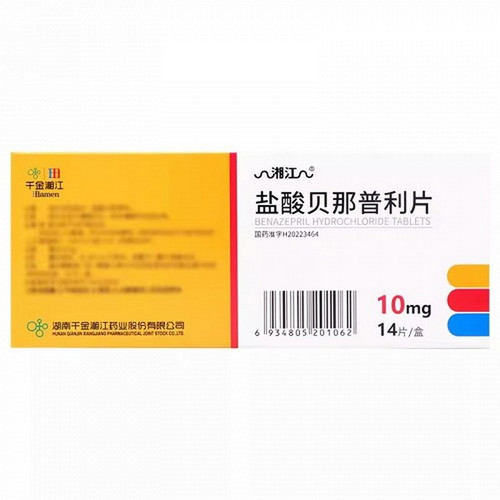Product Overview
[Drug Name]
Generic Name: Lercanidipine Hydrochloride Tablets
Trade Name: Xindapine Lercanidipine Hydrochloride Tablets 10mg x 14 Tablets
[Main Ingredients]
See package insert for details
[Indications/Main Functions]
Indicated for the treatment of mild to moderate essential hypertension.
[Specifications]
10mg x 14 tablets
[Dosage and Administration]
Administration: Take orally once daily 15 minutes before meals. The recommended dose is 10mg per dose, which can be increased to 20mg per dose based on individual patient response.
[Adverse Reactions]
The bioavailability of this product is not affected by age or liver cirrhosis. However, it is contraindicated in patients with severe hepatic or renal impairment.
[Contraindications]
1. Contraindicated in patients under 18 years of age; 2. Contraindicated in patients allergic to dihydropyridines; 3. Not suitable for pregnant or lactating women. This product is contraindicated in women of childbearing age who are not taking any contraceptive measures. 4. It is contraindicated in patients with left ventricular outflow block, untreated congestive heart failure, unstable angina, severe renal or liver disease, or a myocardial infarction within the past month.
[Drug Interactions]
Caution should be exercised when this product is used in combination with enzyme inhibitors such as ketoconazole, itraconazole, erythromycin, and fluoxetine; or enzyme inducers such as phenytoin, itraconazole, erythromycin, and fluoxetine; or enzyme substrates such as terfenadine, astemizole, cyclosporine, amiodarone, quinidine, diazepam, midazolam, propranolol, and metoprolol. Furthermore, lercanidipine hydrochloride tablets should not be taken with grapefruit juice to avoid adverse reactions due to increased blood drug concentrations.
[Precautions]
Please inform your doctor if you have mild to moderate liver or kidney disease or are currently undergoing dialysis so that the dose can be adjusted appropriately. Patients with other heart conditions or pacemakers should inform their doctor so that they can consider this before prescribing.
[Use in Elderly Patients]
Generally, no special dosage adjustment is required for elderly patients, but consideration should be given at the beginning of treatment.







